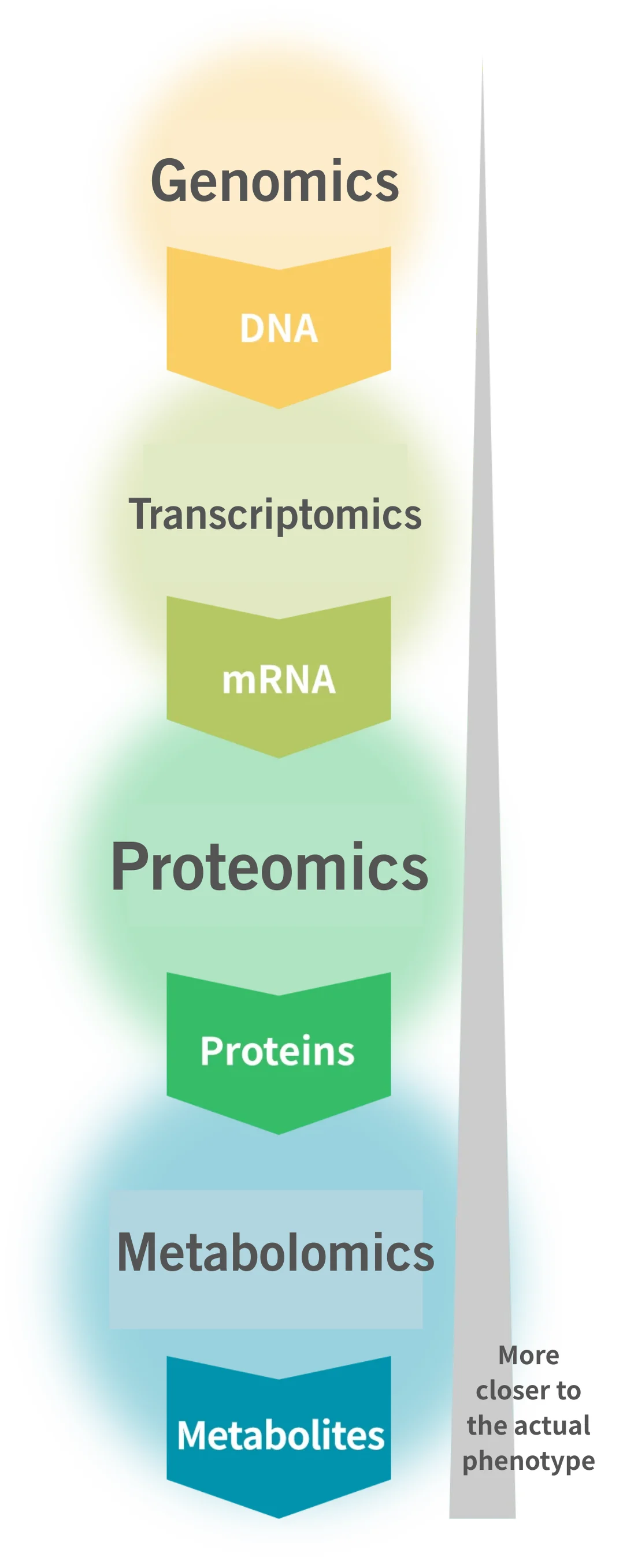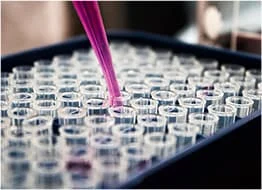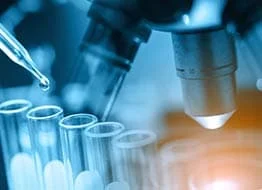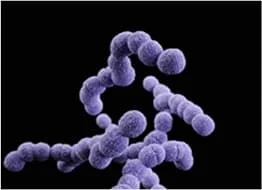Our Key Technologies
Metabolomics
Metabolomics is the comprehensive analysis of small-molecule metabolites within biological systems, aiming to uncover how organisms respond to physiological, pathological, genetic, or environmental changes. Among the various omics fields—genomics, transcriptomics, and proteomics—metabolomics is the closest layer to the actual phenotype, offering a real-time snapshot of the body's functional state The core value of metabolomics lies in its ability to decode physiological changes through molecular structures and identify biomarkers associated with disease. These insights provide a powerful foundation for disease diagnosis, monitoring, and prediction in the era of precision medicine.



Targeted Analysis - Once it’s in our sights, there’s no escape.
Targeted analysis delivers precise and detailed information about specific metabolites, allowing for a deeper understanding of selected compounds. Beyond metabolites, this technique addresses growing needs in areas related to health, food safety, pharmaceuticals, and environmental monitoring—fields that are increasingly regulated by governments to ensure higher standards of safety and quality.
As a critical tool in achieving a better quality of life, targeted analysis is embedded in many aspects of daily living. From pesticide residue in fruits and vegetables, drug detection, and new drug development to health status monitoring, targeted analysis plays a vital role in safeguarding our everyday well-being.
With a strong background in chemistry and years of experience in targeted analysis, Leeuwenhoek Laboratories utilizes high-sensitivity liquid chromatography–tandem mass spectrometry (LC-MS/MS) to accurately identify metabolites based on their mass-to-charge ratio (m/z) and chromatographic retention time. This enables the development of highly reliable and precise quantification methods.
We are committed to providing targeted quantification services for both academic and industrial clients—whether it’s metabolite profiling or pharmacokinetic analysis, we offer custom method development to meet diverse research and application needs.
In addition, we have established multiple gut microbiota–focused quantification platforms, allowing deeper exploration into the intricate relationships between microbial metabolites and human health.
With our scientific expertise and innovative technology, we are proud to partner with you in building a healthier and brighter future.
Targeted Metabolite
Analytical Platform
SHIMADZU LC-20ADxr + SCIEX QTrap® 5500
Untargeted Metabolomics – A molecular detective uncovering hidden clues.
Metabolomics is a field that focuses on a collection of small-molecule compounds—metabolites—which are generally of lower molecular weight compared to those studied in proteomics. These metabolites exhibit diverse physicochemical properties, such as amino acids, nucleotides, phenolic or ketone derivatives, and lipids. Each class has different polarity and may influence host health in different ways. Furthermore, the concentration range of metabolites within biological samples can vary widely. These characteristics pose unique challenges in the analysis and detection of metabolites.
Currently, the main analytical platforms used in metabolomic studies include NMR, GC-TOF, LC-TOF, and LC-Orbitrap.
Given the importance of metabolites in regulating physiological and pathological processes, as well as the need for high sensitivity in detection, our company has built its own metabolite database using authenticated standards. We apply high-resolution Orbitrap mass spectrometry to perform untargeted metabolomic analysis. The Orbitrap offers exceptional resolution, capable of detecting molecular masses with precision up to four decimal places. Compared to NMR, it provides significantly greater sensitivity, allowing for the detection of metabolites present at low concentrations, which enhances our ability to accurately identify compounds within biological samples.
Our key instruments for untargeted metabolomics include:
SHIMADZU LC-20ADxr + SCIEX QTrap® 5500
Our Professional Service Process

Academic and Research Institutions
- Contact us via email or phone.
- Our dedicated specialists will work with you to discuss experimental details and project planning.
- Coordinate sample delivery and logistics.
1

Sample Preparation
- Researchers prepare your samples for mass spectrometry analysis.
- Preparation of animal models or bacterial cultures based on experimental requirements.
2

Experimental Execution
- Perform mass spectrometry analysis, including qualitative and quantitative profiling of metabolites, compared against Leeuwenhoek’s proprietary database.
- Bacterial culturing and analysis.
- Establishment of animal models and execution of specialized treatments.
3

Data Processing & Reporting
- Deliver a comprehensive quantitative results report, including raw data in Excel, image outputs, and a final summary report, based on metabolite confidence levels.
- Database comparison and metabolite identification.
- Summary of results from animal studies.
4